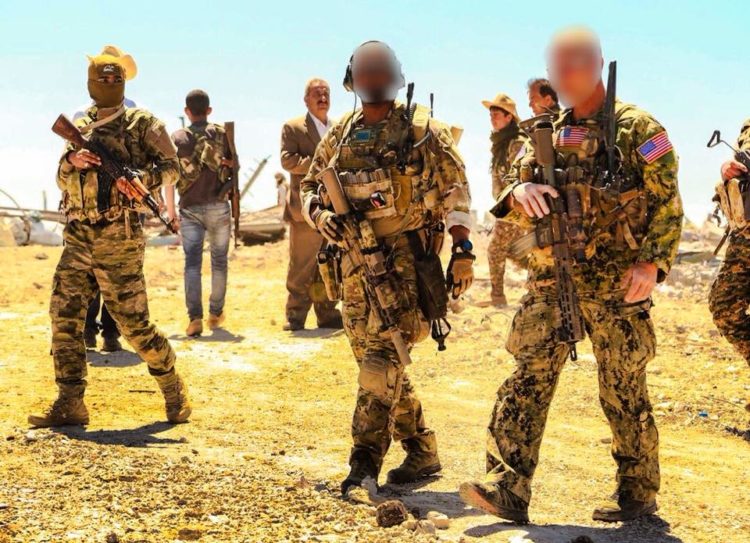Recently, U.S. Ambassador James F. Jeffrey, who serves as the Special Representative for Syria Engagement, gave an interview to Russian journalists. His remarks offer insight into the future of the Syrian conflict, the possibility of an official Kurdistan, and Iranian terrorism.
Ambassador Jeffrey began by emphasising that the venues of communication between the American and Russian governments are functioning very well and that no change is necessary. Functioning, however, doesn’t mean productive when it comes to results.
Russian journalists, then, asked Jeffery about the Battle of Deir al-Zour, which took place in February 2018. Then, Syrian forces and Russian mercenaries working for the Wagner Group, a paramilitary company often linked with the Russian government, attacked a small outpost manned by a handful of American special operations troops — a mix of Delta Force operators and Rangers. A mission support site containing a few more Americans, Green Berets and Marines, was situated a few miles away. The ensuing four-hour firefight resulted in the complete defeat of the Syrian-Russian force.
Although he declined to comment on the specifics, he revealed that this was one incident of at least 12 occasions where American and Russian forces have faced one another, with “some involving exchange of fire, some not.”
He then continued with by restating the administration’s resolute attitude toward Syrian leader Bashar al-Assad. “We consider him a disgrace to mankind. He is a brutal war criminal — probably the biggest and most brutal war criminal in the world today,” he said.
Nonetheless, he indicated that the U.S. government would respect the choice of the Syrian people in postwar democratic elections. He delineated that the U.S. isn’t looking for a change of regime but rather in a change of behaviour by the regime.
Furthermore, the Trump administration will never consider easing its economic sanctions on Iran in exchange for a promise by Tehran to withdraw its forces from Syria. The reasoning behind this seemingly inflexible diplomatic decision stems from Iran’s rampant terrorist-related activities elsewhere in the world. Syria isn’t the only battlespace where the Iranian government is pursuing malicious activities. Lebanon, Iraq, the Gaza Strip, and even Europe, are some of the places where Iranian intelligence operatives and military personnel are active.
As far as Israel, Ambassador Jeffrey said that the U.S. is fully supporting the country’s efforts to ensure its national security and “understand why Israel feels itself existentially threatened by Iranian long-range systems in Syria.”
“I will say that we do urge the Russians to use whatever influence they have with the Syrian government and with the Iranians,” said Jeffrey, “to effect the removal of all Iranian commanded forces from the entirety of Syria as part of a solution that would have all foreign forces other than the Russians leave and return to 2011.”
In spite of the new wave of American sanctions, the Russian government declared that it will continue to sell its oil to any partner it wishes.
Hidden among his other remarks, Jeffrey also indicated the administration’s attitude toward the idea of a united Kurdistan and the territorial composition of a post-conflict Syria. He stressed America’s commitment to the territorial integrity of Syria, citing the example of the U.S. intervention in Iraq (2003-2011) — which didn’t produce any territorial changes. Since the First Gulf War (1991), Kurds residing in Iraq have been granted self-governance. Yet Kurds also reside in parts of Iran, Syria, and Turkey. Their quest for a unified homeland is still to be achieved.
Already have an account? Sign In
Two ways to continue to read this article.
Subscribe
$1.99
every 4 weeks
- Unlimited access to all articles
- Support independent journalism
- Ad-free reading experience
Subscribe Now
Recurring Monthly. Cancel Anytime.











COMMENTS